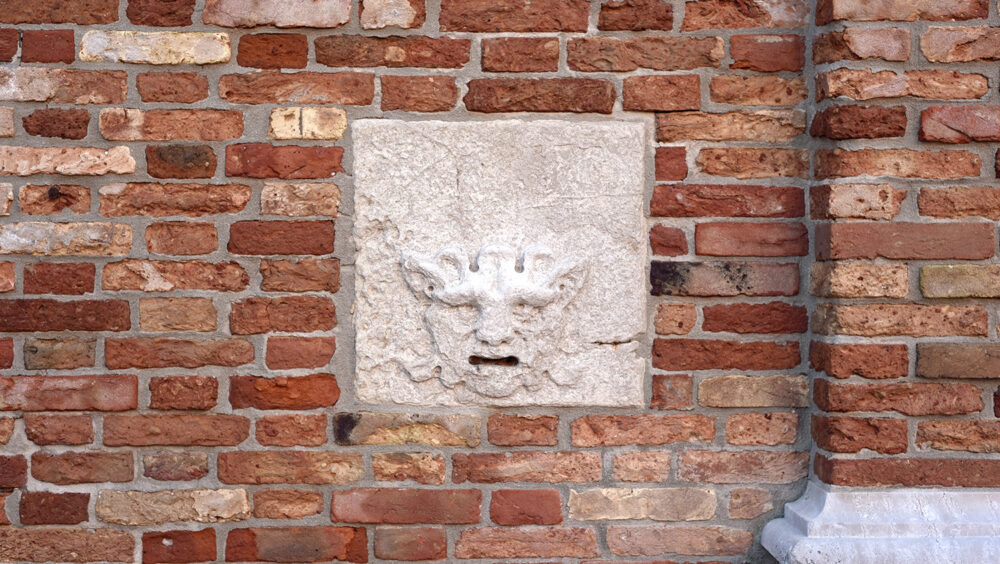Editorial Board
Tommaso Gorla
Tommaso Gorla is an Italian artist and researcher, as well as the founder and chief editor of the visual culture journal Anima Loci (2019). His interests revolve around the agency of images and their affective role within processes of memory and recollection. He works as an associate lecturer at the University of Westminster, the Camberwell College of Arts, and London Metropolitan University, as well as at Accademia Santa Giulia in Brescia, Italy. He holds a PhD in Anthropology from the EHESS, Paris.
Francesco Della Puppa
Francesco Della Puppa is Professor in Sociology at Ca’ Foscari University of Venice. He holds a PhD in Social Sciences from the University of Padua and worked in Italy, Bangladesh, Slovenia, UK, Cuba. His core research interests concern the social transformations prompted by migration phenomena, international migration, transformation of labour, family dynamics, racism. He is author of several monographs and articles for international scientific journals. He is a long distance runner and has played in some post punk bands.
Alex Wilk
Alex Wilk works between research, design and publishing for the arts. She is a freelance researcher for the curator Hans Ulrich Obrist and was an editorial assistant at the photography and visual culture journal Archivo Platform. Previously, Alex worked as a reseacher for architectural designer, Cecil Balmond and led the production of his monograph Crossover (Prestel, 2013). She was also an editor of Balmond Studio’s e-journal Thinking in Practice. Alex’s personal research takes visual and textual formats: she has taken part in art residency programmes, exhibitions and enjoys writing articles. Alex holds an MA in Cultural Studies from Goldsmiths, University of London.
Joey Chin
Joey Chin (1986) is an artist and a Pushcart-nominated writer and poet. Her work is located at the intersection of text, narrative and visual art, staged through poetry, acts and modes of reading, and various disruptions. Her key focus is in the development of personal communications between the self, markings of territoriality, and the inner conversations between the two. She explores etymologies and language use of the Chinese and Greek language through the English lyric and prose. Joey holds an MFA in Creative Writing (Poetry) from the City University of Hong Kong, and her work has received scholarships, grants, and awards from numerous organisations including ArtHub Asia, Asia Europe Foundation, the Royal Over-seas League Arts (United Kingdom), the Dorothy Cheung Foundation (Singapore), the National Arts Council (Singapore), the Run Run Shaw Library (Hong Kong), and the Society for Humanistic Anthropology (US).
Jean-Benoît Vétillard
Jean-Benoît Vétillard is a French architect, living and working in Paris. He currently teaches Representation and Visual Culture at the École de la Ville et des Territoires de Paris-Est and has previously taught at the École Spéciale d’Architecture in Paris (Atelier des Extrapolations Métropolitaines). In 2019 Jean-Benoît Vétillard was the recipient of the prestigious EUROPE 40 UNDER 40 architecture and design award, from The Chicago Athenaeum: Museum of Architecture and Design and The European Centre for Architecture Art Design and Urban Studies. In 2018, he also received the Albums des Jeunes Architectes et Paysagistes award, which is a biennial competition organised by the French Ministry of Culture. After working for several French and Italian architectural studios, including Block Architecture, Salottobuono, Projectiles, Atelier Ciguë and Berger&Berger, he founded his own practice in 2014. His work bridges art, design, and architecture, developing installations as well as private and public projects.
Amedeo Policante
Amedeo Policante is a critical theorist and historian of political thought. He holds a PhD from Goldsmiths College, University of London and is currently a Postdoctoral Research Fellow at the University of Warwick. He is the author of two recent monographs: I Nuovi Mercenari: Mercato Mondiale e Privatizzazione della Guerra (Ombre Corte, 2014) investigating the on-going commodification of security and the resulting fragmentation of social space both at the global and at the urban level; and The Pirate Myth: Genealogies of an Imperial Concept (Routledge, 2016) focusing on shifting representations of piracy in legal, literary and popular culture, and the role they have played in international politics since the eighteenth century. He has also published several articles and book chapters on the political thought of Karl Marx, Carl Schmitt and Michel Foucault; as well as an ethnography of political protests and their visual representation. These works have been disseminating via traditional means such as academic journals, magazines and newspapers; and alternative means such as ‘The Pirate Camp’, a collaborative artistic project featured at the 54th International Art Exhibition of the Venice Biennale.
Peter Lešnik
Peter Lešnik is a scholar of cinema and media whose main research and teaching interests include the politics of the moving image, media archaeologies, documentary cinema, adaptation studies, and ecocriticism. After completing his BA and MA at Ca’ Foscari University of Venice, in 2019 he earned his doctoral degree from the University of Pennsylvania with a dissertation on Michelangelo Antonioni’s screen adaptations of literary texts. He taught for two years courses in film history and film analysis at the University of Pennsylvania, and he is currently teaching at the School of Advanced Studies at the University of Tuymen.
Federico Pagello
Federico Pagello is Lecturer in Film and Media Studies at D’Annunzio University of Chieti-Pescara. He received his PhD from the University of Bologna, and has worked as a post-doctoral fellow at the Universities of Bologna, Limoges and Belfast (Queen’s). His research deals with the history and theory of film and popular media, with a focus on the transnational and transmedia circulation of serial narratives. He has published two monographs (Grattacieli e superuomini. L’immagine della metropoli tra cinema e fumetto, Le Mani 2010; Quentin Tarantino and Film Theory: Aesthetic and Dialectics in Late Postmodernity, Palgrave Macmillan 2020), as well as a number of articles and book chapters included in international peer-review journals and edited collections.
Andrew Hewish
Andrew Hewish is a contemporary artist and curator in London, who works in a variety of media. He is also the Coordinator of Critical Contextual Studies in Art and Photography at the School of Art, Architecture and Design at The Cass. He holds a PhD from the Royal College of Art (RCA) under the supervision of Barry Curtis and Ian Kiaer. In 2020, he was awarded BEM for educational services in the arts. In 2004 he founded the Centre for Recent Drawing, a social practice and a UK charity which has curated over 100 exhibitions in drawing and where he remains as Executive Director. He sits on the board of Poetry School, a UK charity, and has previosuly curated the public engagement in research and exhibtion programme at the Warburg Institute, University of London, and has been Visiting Academic at the University of Oxford’s Ruskin School of Art.
Recent articles

Southern California is many things. Quite infamously, it is known as a landscape defined by the automobile, from the emergence and diffusion of the highway system to fast food burgers, and the suburbanization of the United States. Walking this place then, would seem not only inconvenient, but ill advised. In… Read more »

What is today known as ‘whistleblowing’ could once take the form of interacting with a threatening gaze carved into the city wall. It is the case of the ‘boche de Leon’ or ‘lion’s mouths’ disseminated by the old Venetian Republic throughout its territory to suppress illegal activities. Through a close… Read more »

As he navigates through the recurrent lockdowns of the pandemic, stranded between hitchiking and muggings, job hunting and separations, Fabio Valerio Tibollo rediscovers photography as a powerful coping mechanism. Recording everything that happened around him for one year straight, from attending momentous events to finding curiosity in shots of simple living,… Read more »


